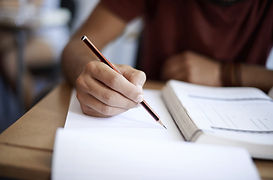
Brain Bee 2016
the international
neuroscience competition
For information about the upcoming International Brain Bee in Daegu, South Korea in September, 2019, please refer to www.thebrainbee.org or email the IBB Executive Director at astrid.eberhart@thebrainbee.org. The below information is relevant exclusively to the 2016 competition.
The heart of the the Brain Bee World Championship is the five competition sections, which explore the students' knowledge of both theory and practice, in research neuroscience and medical neurology. Expert neuroscientists will judge the competition at every level. All competition media will be presented in English, unless further indicated.
At the time of registration, student participants receive additional information about the study materials, judging expectations, sample questions, and competition format.

2016 Competition Details

COMPETITION SECTIONS

Written
A 30-question multiple-choice and short-answer quiz, to be completed in 30 minutes. Some questions will involve data and graphical analysis and reasoning.

Anatomy
A neuroanatomy practical exam with human brain tissues. 90 seconds are granted at each station to provide structure names and/or basic functions.

Histology
Human brain and nervous tissues will be displayed under microscopes. Students must identify the structures by name and/or describe the basic functions of the tissue.

Diagnosis
Video footage of patients will be shown alongside a written medical history. Students may request results from two lab or imaging exams to aid in the diagnosis.

Live Q&A
The judging panel will pose questions to the group, occasionally with projected visual components. Students are given 30-60 seconds to write their answers.
Competition Rules


The Brain Bee World Championship expects a high standard of integrity from each student participant. Absolutely zero tolerance will be demonstrated toward acts of cheating. From the audience, as well, no recording devices will be permitted. All photography and video footage composed by the Organizing Team will be available online following the event.
Upon arrival to Copenhagen, student participants will receive extended and updated rules for each competition section. At the start of each section, the neuroscientist judges will provide an overview of the rules. Official timekeepers will oversee that all questions are complete within the allotted times. For example, during the Neuroanatomy Section, students will rotate every 90 seconds between table stations, each with one brain and one affiliated question. During the Live Question and Answer Section, diffferent questions may be allotted different lengths of time, which will be clearly stated during the event. Responses will be graded as correct or incorrect: no partial credit will be granted. Incomplete answers are counted as zero points.
The weight of each Competition Section is listed below:
Live Q&A: 25%
Written Quiz: 25%
Diagnosis: 20%
Anatomy: 20%
Histology: 10%
Contestants may bring their personal writing instruments, such as pens, pencils, erasers, and pencil sharpeners, into the examination rooms. Not permitted are mobile phones, calculators (including watches with built-in calculators), other electronic devices, or any written materials.

Expert Judging Panel

DR. PAUL BOLAM
As Emeritus Professor of the University of Oxford Anatomical Neuropharmacology Department and Co-Editor-in-Chief of the European Journal of Neuroscience, Dr. Bolam's research has focused on neuronal networks of the basal ganglia, with more than 200 articles published during his career.

DR. SUSANA MARTINEZ-CONDE
Dr. Martinez-Conde is the Director of the Laboratory of Integrative Neuroscience at the State University of New York, Downstate Medical Center, and acclaimed co-author of two books on illusions and the neural mechanisms of perceptual sleights.

DR. ANDREW TREVELYAN
Dr. Trevelyan is a former neurosurgeon and current Senior Lecturer in Network Neuroscience at Newcastle University in the UK. His work addresses the foundations of epileptic seizures and has earned numerous awards, including the Columbia University Schaefer Resarch Scholar Award.

DR. NICOLAS CAESAR PETERSEN
With professorships at the University of Copenhagen and the University of Queensland, Australia, Dr. Ptersen serves as the current Chair of the FENS 10th Forum Host Society Committee. His research addresses the control of movement.

DR. STEPHEN MACKNIK
Dr. Macknik directs the Laboratory of Translational Neuroscience at the State University of New York, Downstate Medical Center. In addition to co-authoring several books about the neuroscience of magic and illusions, he serves as an advisor to Scientific American: Mind.

MICHAELA KRESS
As former President of the Austrian Neuroscience Society, Dr. Kress now serves as the Head of the Department of Physiology at the Medical University of Innsbruck. Work in her lab has contributed significantly to the understanding of neuropathic and neurogenic pain disorders.

DR. CORETTE WIERENGA
Dr. Wierenga is a professor of Cell Biology at Utrecht University and leads a research team to investigate the molecular mechanisms of inhibitory synapses in the hippocampus. She has been awarded high-profile support for her research, including the ZonMW-VIDI grant in 2012.

DR. GAIA NOVARINO
As a professor of neuroscience at the Austrian Institute of Science and Technology, Dr. Novarino researches molecular mechanisms underlying neurodevelopmental disorders, such as autism. She is the recipient of the prestigious 2016 Boehringer Ingelheim FENS Research Award.
All questions will be derived from these three texts:
“Essential Neuroscience” 3rd Edition by Siegal and Sapru
“The Brain: An Introduction to Functional Neuroanatomy” Watson, Paxinos & Kirkcaldie
“The 2016 IBB Study Guide" by IBB Organizers, available from April 20 only to confirmed student participants (password required)

Study Materials

Prizes
1st USD $3000 Cash
Perpetual International Brain Bee Championship Trophy (held for 1 year)
Summer Research Internship coordinated by the Society for Neuroscience
2nd USD $2000 Cash
3rd USD $1000 Cash
All finalists:
Medal, Participation Bag, and Certificate of Participation
